
Amid the vaccine war, Brazil is still counting lost lives
This war threatens adherence to immunization and makes us watch the daily increase in the number of infected and dead
05/02/2021
Almost 103 years have passed since the Spanish flu, the mother of recent pandemics, has plagued the world and COVID-19 puts scientific knowledge to the test, showing how much fake news and the negativism of the population and government can harm public health
Struggling with the worst numbers in the fight against the pandemic and counting record numbers of deaths, Brazil has been a place of war over the vaccines against COVID-19. On the one hand are the governors and on the other is the Brazilian people, who find themselves in the midst of a political dispute that opposes governors to the Nations President and which brought immunization plans and strategies to justice. This war threatens adherence to immunization and makes us watch the daily increase in the number of infected and dead.
The politicization of issues related to mandatory vaccination against COVID-19 finds similarity (fight against a serious epidemic, dissemination of false information about side effects of immunization, denialism and a population suspicious of a simple sting in the arm) in one of the most notorious episodes of Brazilian public health: the 1904 Vaccine Revolt.
But if there is anything that presents itself to a useless debate, it is about the importance and the need for vaccination. It is one of the most effective public policy strategies for preventing infections and epidemics. The centuries have passed and unfortunately Brazil is among the countries in which a portion of the population does not trust the efficacy and still fears vaccines. Theories are practically the same, that vaccines have the opposite effect, even with figures showing the opposite. The war of narratives and disinformation affects the work of scientists and health professionals.
Are we experiencing a new Vaccine Revolt? Going back a little bit in time, the 1904 revolt that triggered discussions about the law that made smallpox vaccination mandatory, arose from a combination of factors that triggered a huge popular discontent based on a disinformation campaign mobilized by opponents the government of then President Rodrigues Alves and the physician responsible for the immunization action, the sanitary Oswaldo Cruz, who was Secretary of Public Health at the time. The 1904 riot left us with a lesson about the effectiveness of vaccines in human longevity and that todays revolt is for vaccine and not against it.
The decision of the Supreme Federal Court (STF) that made vaccination against COVID-19 mandatory in December 2020, with sanctions for those who decide not to take the immunizer, represents a great victory. By placing the collective interest above individual decisions, the STF took a decisive step in the battle against the pandemic.
Attentive to the political movement around the vaccine war, the Brazilian people and science through their researchers follow with concern the discussions that put the instances of government on opposite sides. It is worth mentioning that there is no gain for any level of Government in politicizing or preventing the use of a vaccine. What is needed is the governments commitment and immediate solutions to fight the coronavirus.
Devastating pandemics, COVID-19 is worse than Spanish flu
Almost 103 years have passed since the Spanish flu, the mother of recent pandemics, has plagued the world and COVID-19 puts scientific knowledge to the test, showing how much fake news and the negativism of the population and government can harm public health. And, as in the past, once again in history, in addition to seeking medicines and vaccines, science must fight against fake news that tries to delegitimize it. The difficulties faced in the past serve as a mirror for the correct way to deal with the current situation.
In the Spanish flu pandemic, the elderly were also the age group most affected and, like COVID-19, the main measure to prevent the spread of contagion was social isolation. It was recommended that the population avoid coughing, sneezing, spitting or blowing their nose in public and wearing masks. The agglomerations were discouraged and, with this, urban life stopped, and the economically active population, between twenty and forty years old, was the most affected.
From January 1918 to December 1920, Spanish flu infected an estimated 500 million people, about a quarter of the worlds population at the time. The death toll is estimated to be between 17 million [and 50 million, and possibly even 100 million], making it one of the deadliest epidemics in human history. Spanish flu was the first of two pandemics caused by the influenza virus H1N1, the second occurring in 2009. In Brazil, the pandemic resulted in at least 35 thousand deaths, including President Rodrigues Alves. In a single day, Rio de Janeiro reached a thousand deaths. The second wave of the pandemic was much deadlier.
Over a century after the Spanish flu, the lessons of this global epidemic are still saving lives. Prevention methods such as face masks and social distancing might seem strange practices in Brazil, but they were already familiar to those who fought the 1918 pandemic.
Check out some historical images and memories of the Spanish flu, reported in a letter written by the mother of the retired Professor of the Department of Tropical Medicine, Instituto Oswaldo Cruz, Rio de Janeiro, Dr. Fernando Dias de Avila Pires, Mrs. Maria de Lourdes Dias de Avila Pires.
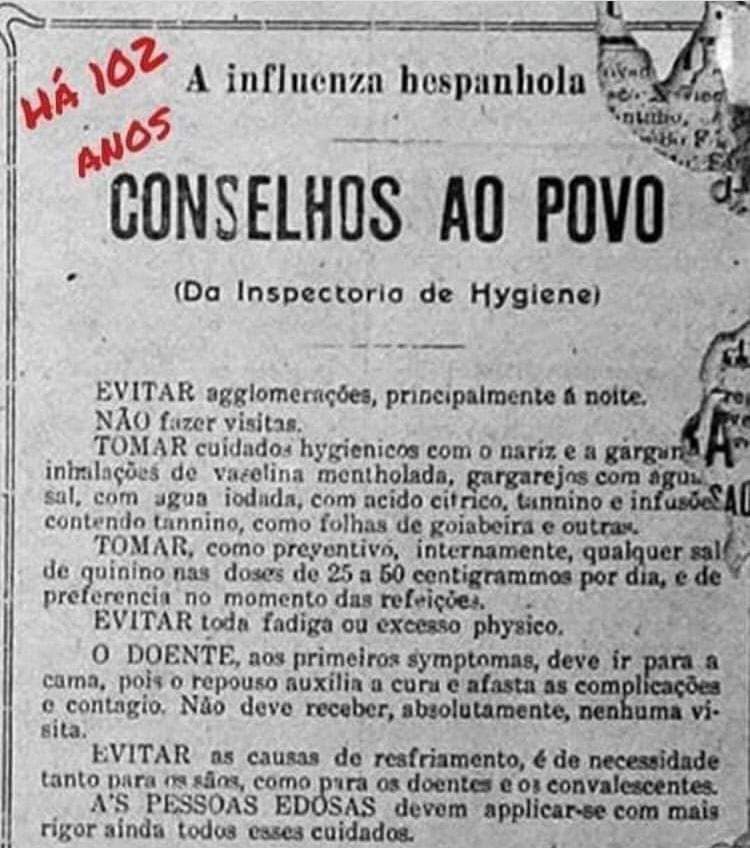


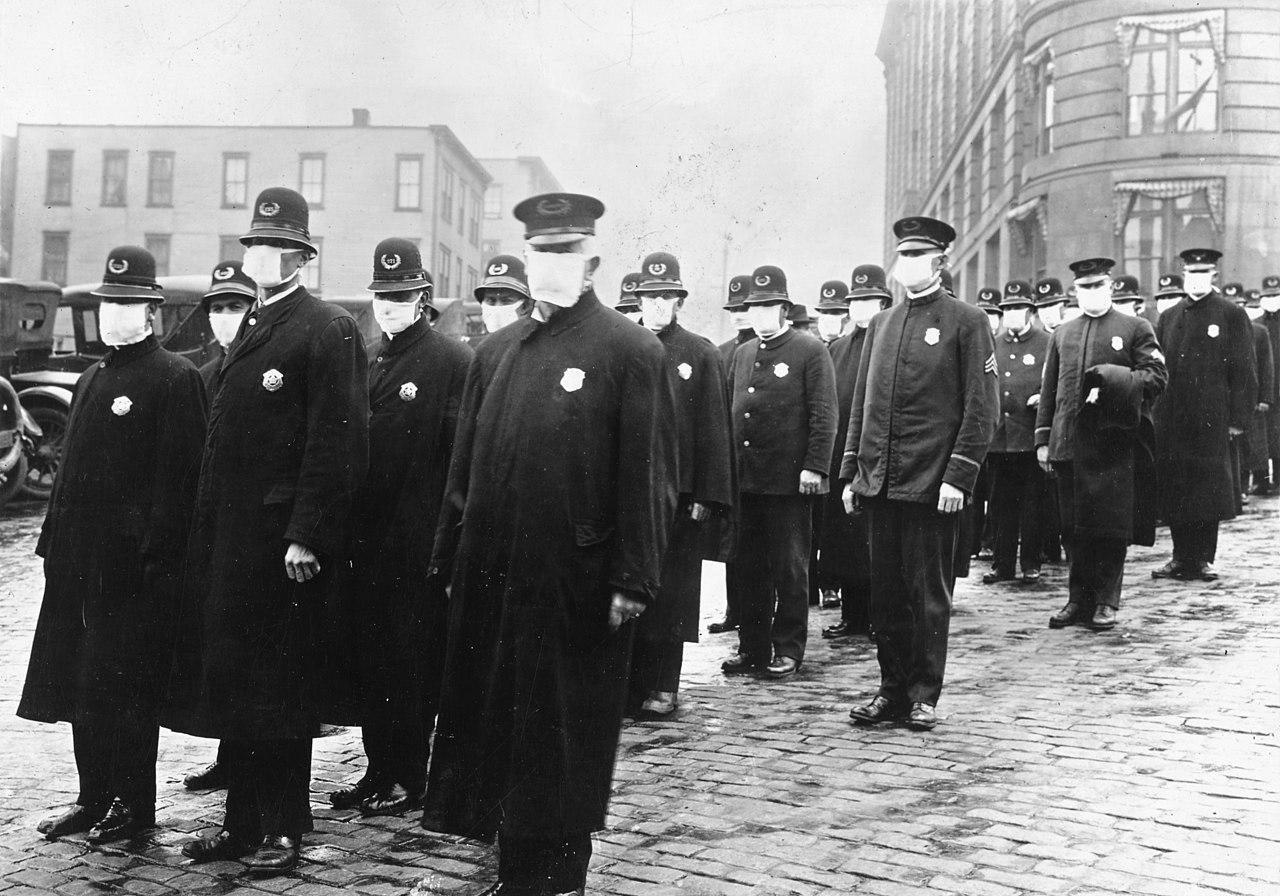
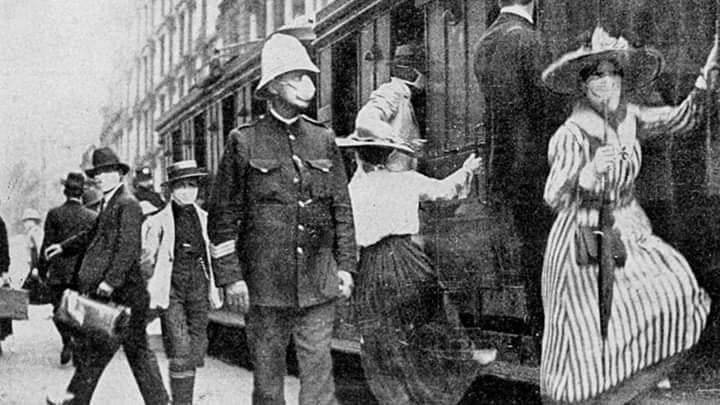
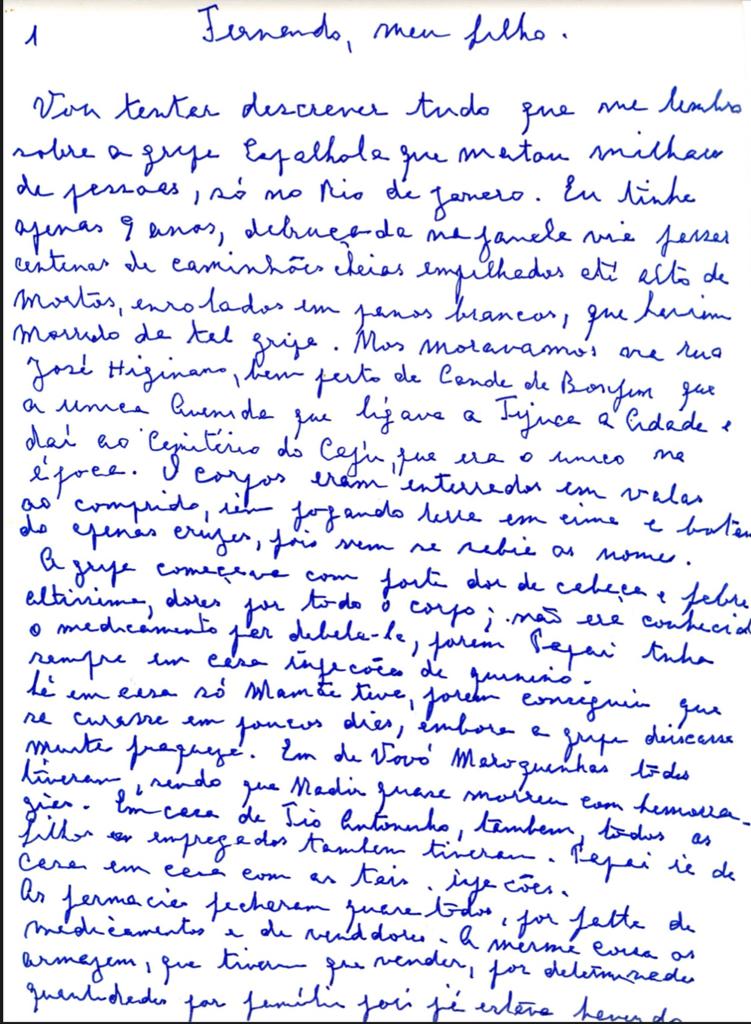
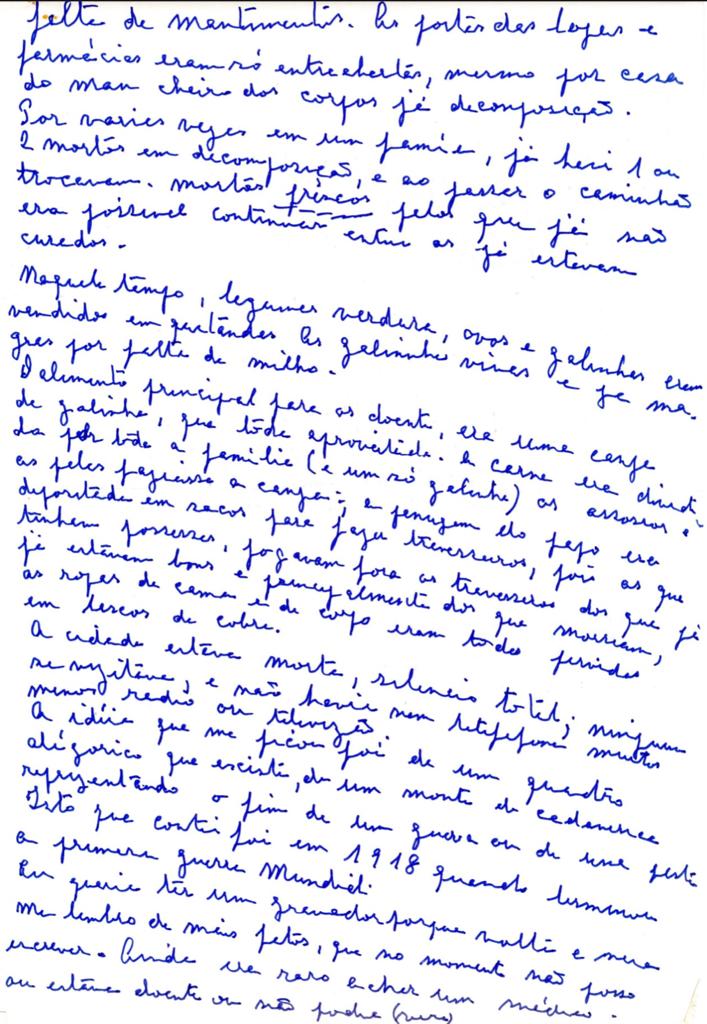
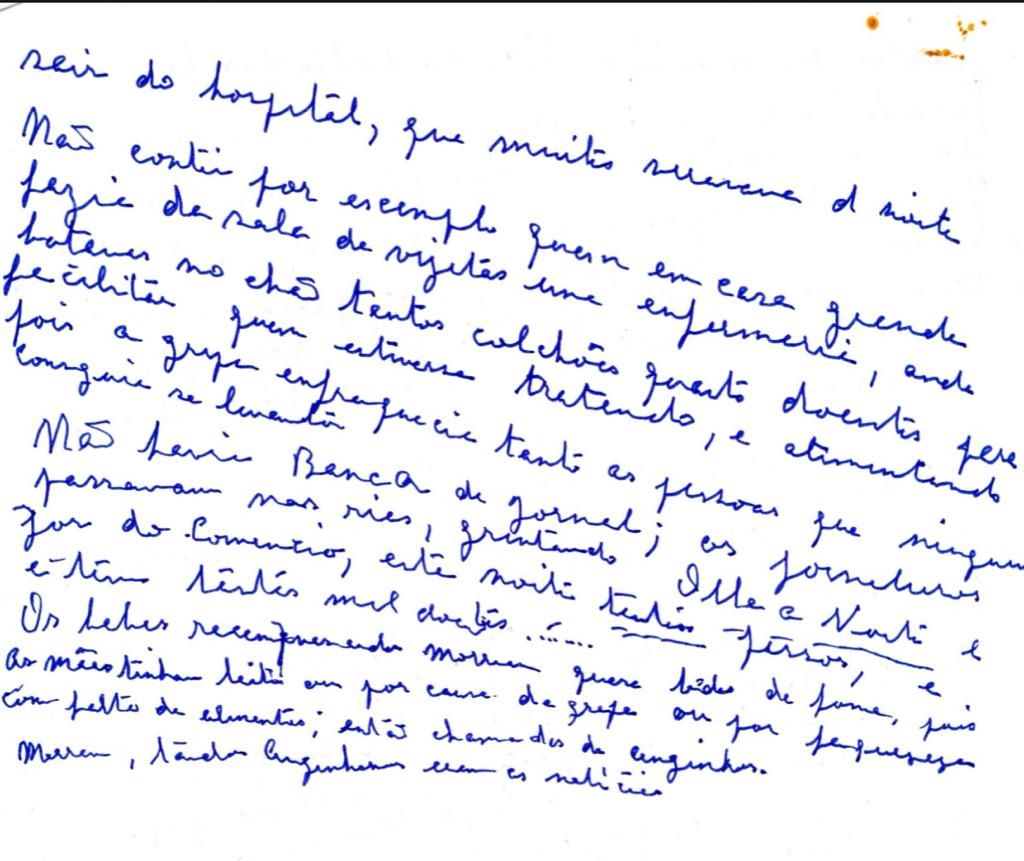
Photo: Internet Image.
Access: Gripe espanhola ma?e quem e? quem










